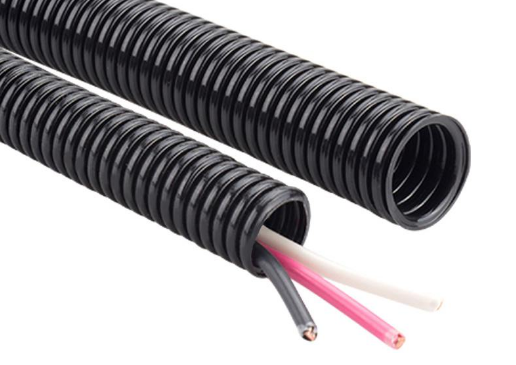Dec. 16, 2023
Non-metallic conduits resist corrosion and are light-weight, reducing installation labor cost. When installed with proper sealing fittings, a conduit will not permit the flow of flammable gases and vapors, which provides protection from fire and explosion hazard in areas handling volatile substances.
What is Flexible Non-Metallic Conduit?
Flexible non-metallic conduit is a durable, versatile, and lightweight conduit designed for protecting electrical wiring. It's constructed from PVC (polyvinyl chloride) or other non-metallic materials, ensuring flexibility without compromising on strength. This flexibility allows for easy installation even in tight or irregular spaces, a feature that rigid metallic conduits often lack.

Advantages of Using Flexible Non-Metallic Conduit
1. Corrosion Resistance: One of the primary benefits of FNMC is its immunity to corrosion, unlike metallic conduits that are susceptible to rust and degradation over time. This resistance ensures a longer lifespan and reduced maintenance requirements, making it a cost-effective choice.
2. Flexibility and Maneuverability: The pliable nature of flexible non-metallic conduits enables easy bending, shaping, and routing around obstacles or through challenging spaces, minimizing the need for additional fittings and reducing installation time.
3. Lightweight and Easy to Handle: Compared to traditional metallic conduits, FNMC is significantly lighter, simplifying transportation, handling, and installation. Its lightweight nature also reduces strain on support structures, making it ideal for various environments.
4. Insulation Properties: Non-metallic conduits provide excellent insulation against electrical shocks and prevent electrical interference or grounding issues, ensuring enhanced safety for both the electrical system and individuals handling the wiring.
5. Resistance to Chemicals and UV Rays: These conduits exhibit resilience against a wide range of chemicals and UV rays, maintaining their structural integrity and performance in diverse environments, including outdoor installations.
Applications and Usage Scenarios
The versatility of flexible non-metallic conduits extends their applicability across various industries and settings:
- Residential Installations: FNMC finds widespread use in homes due to its ease of installation, safety features, and adaptability for concealed wiring in walls, ceilings, or floors.
- Commercial Buildings: In office spaces, retail outlets, and other commercial structures, these conduits are favored for their ability to accommodate complex wiring systems and offer superior protection against potential hazards.
- Industrial Settings: Industries rely on FNMC for its durability in harsh environments, resistance to chemicals, and suitability for heavy-duty applications.
- Outdoor Installations: With their UV-resistant properties, these conduits are ideal for outdoor setups, including landscaping lighting, irrigation systems, and outdoor electrical installations.
Installation and Maintenance Tips
When utilizing flexible conduits, adhering to proper installation practices is crucial for optimal performance and longevity:
- Bend Radius Consideration: Avoid sharp bends that may cause damage or reduce the conduit's efficiency. Follow manufacturer guidelines for the acceptable bend radius.
- Secure Fixtures Properly: Securely fasten the conduits to prevent sagging, especially in vertical installations, ensuring longevity and stability.
- Regular Inspections: Periodic checks for signs of wear, damage, or degradation are essential to maintain the conduit's integrity and prevent potential hazards.
Conclusion
In the realm of electrical wiring installations, the utilization of flexible non-metallic conduits stands as a testament to innovation and practicality. Their versatility, durability, and safety features make them an indispensable choice across diverse applications, setting a standard for modern electrical systems.

















